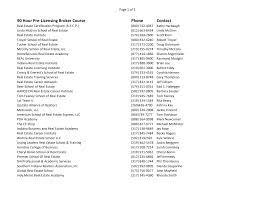
If you're wondering: "Do I need a real estate agent?" Here's what you need to know. Agents can streamline the whole process, whether you are buying or selling your home. Agents aren't looking to rush transactions and they prefer to eliminate the middleman. It will take patience, negotiation skills, and plenty of paperwork to hire a real agent.
It is possible to buy a home without the assistance of a realtor
There are advantages and disadvantages to buying a home without a realtor. It is risky and can lead to costly mistakes. A realty agent can guide you through the process, help you prepare for the paperwork, as well as help you find your dream home. The upside to purchasing a home in your own name without a realtor is that it will save you time and money down the road.

Buying a home without a realty agent is a great option for people who don't want to pay a high commission. If you're familiar with the area you can search for houses yourself. You can use Zillow, Facebook Marketplace and other sites to search for homes for rent by owner. Make sure you have comps of comparable homes in your neighborhood before you purchase a house.
Buying a home with a buyer's agent
It is wise to use a buyer's representative. Agents are privy to information such as zoning laws and tax details, which can help you make an informed decision. Scrolling through listing photos just isn't the same as seeing a property in person. A buyer's agent will also be able to help you find out what the sellers have to say about their property. This is a vital step in the process of buying a property.
A buyer's representative may also be beneficial to your financial situation. The buyer's agent receives a commission for the sale of the property. Buyer's agents must abide by a code of ethics, which requires them to act with due diligence, reasonable care, and undivided loyalty. If you're not familiar with the local realty market it may be a good idea to hire a buyer’s agent.
Selling a home without a buyer's agent
Many people aren't sure what the benefits are of selling their home without a broker. The truth is that the commission paid by the buyer's agent, usually 2.71% of the sale amount, will still be payable. Although this may seem like a large amount, it all depends on where you live and what market you are in. FSBO may be more feasible than other options in some markets.

You might also be paying a commission to a buyer's agent, and the seller isn't negotiating. The downside of not hiring a buyer’s agent is that you might have unrealistic expectations about the sale price. Or the agent may push you to make a quick deal or place you in the wrong house. You will be on your feet if the seller doesn't want to make any disclosures about the home.
FAQ
What should I consider when investing my money in real estate
The first step is to make sure you have enough money to buy real estate. If you don't have any money saved up for this purpose, you need to borrow from a bank or other financial institution. Also, you need to make sure you don't get into debt. If you default on the loan, you won't be able to repay it.
It is also important to know how much money you can afford each month for an investment property. This amount must cover all expenses related to owning the property, including mortgage payments, taxes, insurance, and maintenance costs.
Also, make sure that you have a safe area to invest in property. It would be a good idea to live somewhere else while looking for properties.
Should I use an mortgage broker?
A mortgage broker is a good choice if you're looking for a low rate. Brokers are able to work with multiple lenders and help you negotiate the best rate. However, some brokers take a commission from the lenders. Before signing up for any broker, it is important to verify the fees.
What are the benefits associated with a fixed mortgage rate?
Fixed-rate mortgages guarantee that the interest rate will remain the same for the duration of the loan. You won't need to worry about rising interest rates. Fixed-rate loan payments have lower interest rates because they are fixed for a certain term.
How do I eliminate termites and other pests?
Termites and many other pests can cause serious damage to your home. They can cause damage to wooden structures such as furniture and decks. It is important to have your home inspected by a professional pest control firm to prevent this.
Can I buy a house in my own money?
Yes! There are programs available that allow people who don't have large amounts of cash to purchase a home. These programs include government-backed mortgages (FHA), VA loans and USDA loans. Check out our website for additional information.
How do I repair my roof
Roofs may leak from improper maintenance, age, and weather. Repairs and replacements of minor nature can be made by roofing contractors. Contact us for more information.
Statistics
- 10 years ago, homeownership was nearly 70%. (fortunebuilders.com)
- Some experts hypothesize that rates will hit five percent by the second half of 2018, but there has been no official confirmation one way or the other. (fortunebuilders.com)
- This seems to be a more popular trend as the U.S. Census Bureau reports the homeownership rate was around 65% last year. (fortunebuilders.com)
- This means that all of your housing-related expenses each month do not exceed 43% of your monthly income. (fortunebuilders.com)
- Over the past year, mortgage rates have hovered between 3.9 and 4.5 percent—a less significant increase. (fortunebuilders.com)
External Links
How To
How to Find an Apartment
Finding an apartment is the first step when moving into a new city. This involves planning and research. This includes researching the neighborhood, reviewing reviews, and making phone call. There are many ways to do this, but some are easier than others. Before renting an apartment, you should consider the following steps.
-
Researching neighborhoods involves gathering data online and offline. Online resources include Yelp. Zillow. Trulia. Realtor.com. Offline sources include local newspapers, real estate agents, landlords, friends, neighbors, and social media.
-
Read reviews of the area you want to live in. Yelp and TripAdvisor review houses. Amazon and Amazon also have detailed reviews. You can also check out the local library and read articles in local newspapers.
-
Call the local residents to find out more about the area. Talk to those who have lived there. Ask them about their experiences with the area. Ask if they have any suggestions for great places to live.
-
Check out the rent prices for the areas that interest you. Consider renting somewhere that is less expensive if food is your main concern. Consider moving to a higher-end location if you expect to spend a lot money on entertainment.
-
Find out more information about the apartment building you want to live in. What size is it? How much does it cost? Is it pet-friendly What amenities do they offer? Can you park near it or do you need to have parking? Are there any rules for tenants?